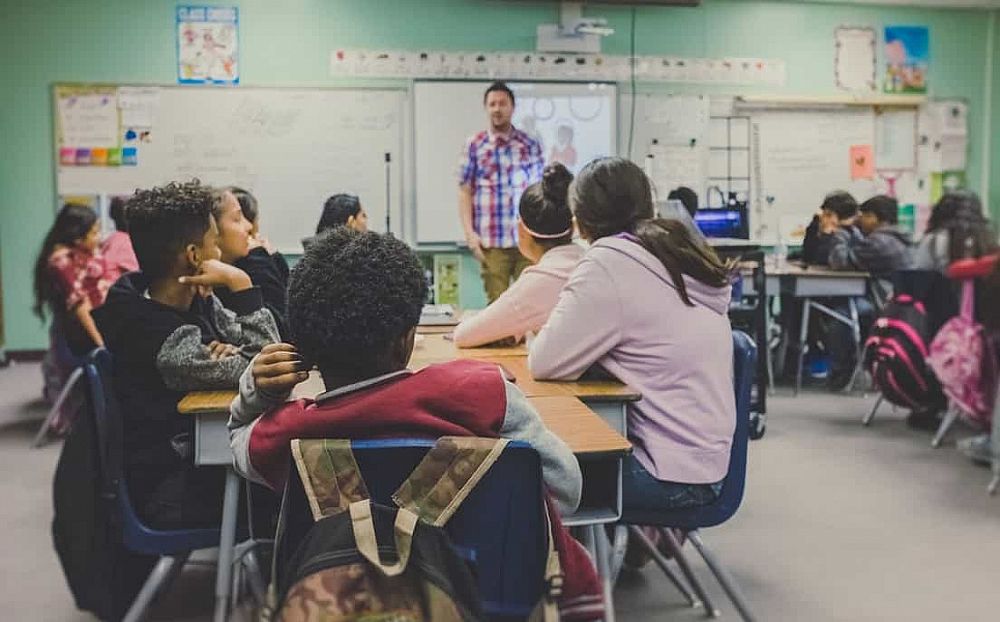The Subtle Art of Building Relationship in The Classroom

Second language acquisition depends on the interpersonal relationship) between teacher-student as well as student-student. These interpersonal relationships are based on rapport, which is defined as "a mutual, respectful, enjoyable, and positive connection" (Frisby, 2018). There are two quotes that reflect this. First, Aristotle stated, "educating the mind without educating the heart is no education at all." Second, Confucius stated, "By three methods we may learn wisdom; First, by reflection, which is noblest; Second, by imitation, which is easiest; and third by experience, which is bitterest. These quotes highlight the need for rapport.
Table of Contents
Do you want to acquire new teaching skills? Take a TEFL course!
This post was written by our TEFL certification graduate William N. Please note that this blog post might not necessarily represent the beliefs or opinions of ITTT.
Emotional Intelligence
First, rapport is established by reflection, especially to build emotional intelligence. In my experience, this is something that has often been left out of the training materials. Teachers with high emotional intelligence will not only be able to manage classrooms better, but also be more able to connect with students (Delwaele, Gkonou, & Mercer, 2018). Having emotional intelligence also enables the teacher to have stronger emotional regulation, higher creativity, and stronger self-efficacy (ibid). This means that the teacher can focus on the best way to deliver the content according to the needs of the student. Reflection can also develop a teacher's self-efficacy which affects the teacher's instructions, choice of activities, and desire to help the student achieve (Akbari & Allevar, 2010). Thus, the initial step in building rapport begins with the teacher's own reflection.
Having emotional intelligence also helps to avoid problems that hinder rapport. Just as a counselor needs to avoid countertransference, a teacher needs to insulate his practice from personal motivation. Teachers may be affected by praise, reward, appreciation, and communication with the superiors (Ipek & Kanatlar, 2018). While this may be positive, the teacher should not depend on his students for his self-efficacy. However, it is stated that stress and burnout in teachers prevented them from opening up to students, making them become unfriendly, harsh, short-tempered, and unapproachable (Yunus, Osman, & Ishak, 2011). Demotivation occurred when there high stress, restricted autonomy, and insufficient self-efficacy (Ipek & Kanatlar, 2018). Having strong emotional intelligence helps to buffer the demotivation from affecting the students.
Also Read: The Benefits and Pitfalls when Teaching One-on-One
Strong Interest
Rapport is often achieved by encouraging students to perform well and looking out for their academic success. Teachers who have strong rapport demonstrate a strong interest in students as individuals, acknowledges the feelings of their students, encourages questions, and places importance on the students' understanding (Akbari & Allvar, 2010). Students want teachers who are both friendly, approachable, and helpful because these teachers make the learning process more inviting, easier, and less stressful (Yunus, Osman & Ishak, 2011). Students also want teachers who are respectful and can blend caring with firmness (Yunus, Osman, & Ishak, 2011). Thus, emotional intelligence and reflection can help a teacher set and maintain appropriate boundaries in interpersonal relationships.
Feedback
Rapport is often built from proper feedback from teachers. Feedback can come through nonverbal and verbal attending behavior. (Frisby, 2018). Proper feedback to build rapport can also help also through verbal and non-verbal contextualization, speech tempo, speech volume, emphasis, intonation, facial expressions, body language, and vocal effects (Nguyen, 2007). Proper feedback should be focused on promoting the individual academic achievement of the student but can include the performance of the whole class as well.

Also Read: Do TEFL teachers need a second language?
Commitment
Rapport can be developed by setting a model of a positive growth mindset. Teachers should demonstrate willingness. Teachers who have strong self-efficacy show a strong commitment to teaching, spend more time in areas of perceived inefficacy, and devote more time to academic growth (Akbari & Allvar, 2010). Moreover, positive teacher-student relationships improve not only classroom management but also makes the atmosphere more conducive, comfortable, and safe for self-learning and self-discovery of the students (Yunus, Osman, & Ishak, 2011). Modeling openness and ensuring a productive atmosphere also rewards the teacher through their students progress. First, students acknowledged that they are more attentive to content when they don't understand or did not already know (Wang, 2015). Second, students with an openness to culture or world knowledge is shown to motivate their teachers (Ipek & Kanatlar, 2018).
Communication
One area of growth for many ESL teachers is the willingness to communicate. In the lesson materials, the book gives the caveat to refrain from speaking in the foreign language of the student. While this may be true in most situations, speaking in the foreign language of the student, called code-switching, has been used effectively by some teachers in building rapport (Siong & Min, 2017). Before and after the class, teachers can initiate in small talk or unplanned language which can promote rapport (Nguyen, 2007). Moreover, getting to know the students beyond their class performance allows the instructor to make their feedback and instruction more relevant to the student (Frisby, 2018). While a kind teacher would encourage a student to open up and communicate more, an angry teacher frightens students from making mistakes (Wijaya & Rizkina, 2015). Other factors that discouraged students from speaking in class was class size, task type, and language anxiety.

Also Read: How much does a TEFL course cost?
Engagement
Another area where ESL teachers can demonstrate a growth mindset is with roles and technology. First, efficacious teachers are more willing to cooperate with parents and try to let parents become engaged with their student's educational performance (Akbari & Allvar, 2010). Extending beyond the classroom, the blended learning and flipped classroom models are becoming more widely used. To be specific, I have worked with ALO7, which uses a blended learning approach, as well as VIPKid, which uses a flipped classroom approach. In blended learning, online collaborative projects, online quizzes, and online learning resources can help teachers to reach out to students (Shebansky, 2018). In the flipped classroom, students comprehend content before the class as they independently devote their own time and effort to do ungraded tasks (Teo & Sathappen, 2018). By changing the style of teaching from teacher-centered, chalk-and-talk style, to more student-centered, teachers can demonstrate more trust in the student to take responsibility for learning, thus building rapport.
Do you want to acquire new teaching skills? Take a TEFL course!
In my personal career in ESL, rapport is one of the most important elements of teaching. This essay has set out to demonstrate how rapport can be developed in the ESL classroom.
Apply now & get certified to teach english abroad!
Speak with an ITTT advisor today to put together your personal plan for teaching English abroad.
Send us an email or call us toll-free at 1-800-490-0531 to speak with an ITTT advisor today.
Related Articles:
- Why You Should Take Specialized TEFL Courses
- Where to Earn the Highest Salaries Teaching English Abroad
- The Best Apps to Have on Your Phone While Teaching English Abroad
- 7 Steps to Paying Off Your Student Loans While Teaching English Abroad
- 5 Reasons Why Teaching English Abroad Enhances Your Career Prospects
- The Best Government Programs For Teaching English Abroad



